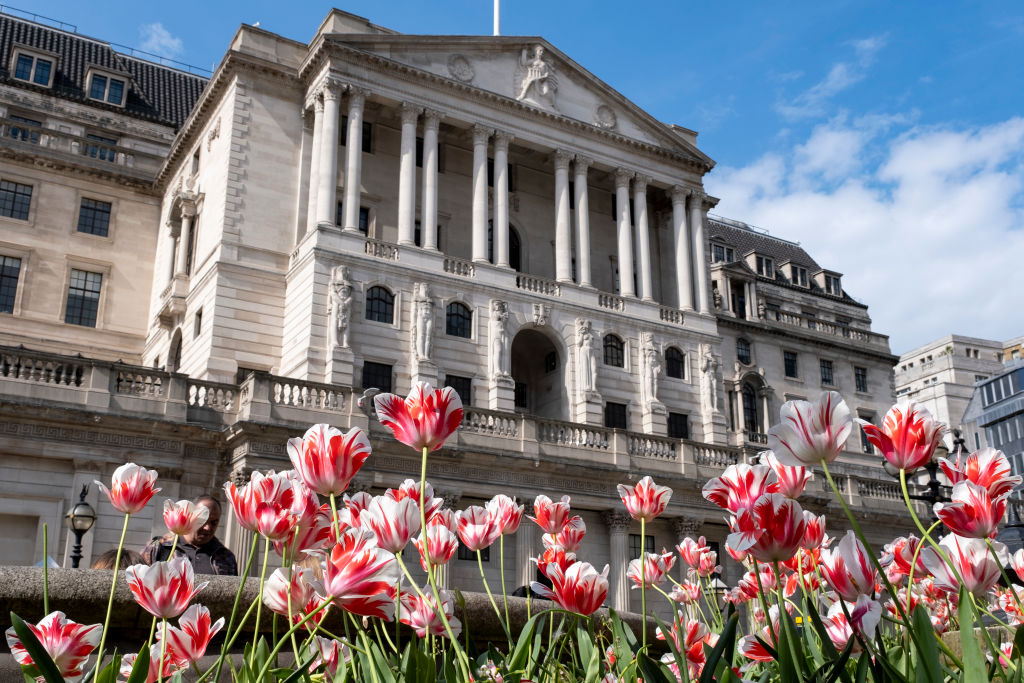NIESR: The UK is likely to avoid a recession, but persistent inflation will damage household budgets
The National Institute of Economic and Social Research (NIESR) says a UK recession is unlikely in 2023, but calls for more help for households in the March Budget


Get the latest financial news, insights and expert analysis from our award-winning MoneyWeek team, to help you understand what really matters when it comes to your finances.
You are now subscribed
Your newsletter sign-up was successful
Want to add more newsletters?

Twice daily
MoneyWeek
Get the latest financial news, insights and expert analysis from our award-winning MoneyWeek team, to help you understand what really matters when it comes to your finances.

Four times a week
Look After My Bills
Sign up to our free money-saving newsletter, filled with the latest news and expert advice to help you find the best tips and deals for managing your bills. Start saving today!
The UK is likely to avoid a recession in 2023, according to the NIESR, but warned that for millions of households it may well feel like one as they see a reduction in their overall disposable income and continue to fight permanently high energy and food costs.
It also warned that GDP growth was likely to remain at zero and that although inflation will fall, it will be sticky and take time to go down. Inflation is currently at 10.5%.
The independent research institute said inflation was one of the main concerns for 2023 at both the macroeconomic and household level. It expects that inflation will still be above 3% at the end of 2024 and will not reach the Bank of England’s 2% target until the third quarter of 2025.
MoneyWeek
Subscribe to MoneyWeek today and get your first six magazine issues absolutely FREE

Sign up to Money Morning
Don't miss the latest investment and personal finances news, market analysis, plus money-saving tips with our free twice-daily newsletter
Don't miss the latest investment and personal finances news, market analysis, plus money-saving tips with our free twice-daily newsletter
The body said it was concerned about the persistent inflation, which will continue to reduce disposable income levels, particularly for middle income households - with energy prices and food costs mostly denting budgets.
“We project that 7 million UK households (1 in 4) will be unable to meet in full their planned energy and food bills from their post-tax income in 2023/24, up from around 1 in 5 in 2022/23,” it stated.
Professor Leaza McSorley, senior research manager (Macroeconomics) at NIESR, said the real risk to the UK economy is the reduction in household disposable income.
March budget: what could help?
The NIESR said the March budget could play a vital role in helping households tackle high food and energy costs.
Professor Adrian Pabst, deputy director for public policy at NIESR, said it was likely that high prices were here to stay and since inflation is not going to come down rapidly, it was vital the government addressed this in the March Budget.
“Even when inflation comes down, price levels will remain high. Food and energy will be permanently high and it is up to policy makers to address this,” he said.
“Inflation has hit the squeezed middle earners the most as they are most likely to be affected with higher rates and mortgage costs, but will not have benefited from the same support packages.”
The NIESR called on the government to combine both social and a variable price cap to help households with energy bills.
Where a social tariff would help the poorest households, a variable price cap would be a system where the price of energy rises with usage.
Pabst added: “Low-income households have seen their disposable income fall by nearly 20% since the onset of Covid. Those worst affected tend to live in some of the most economically deprived areas of the country, including parts of the three devolved nations and the North-East of England whereas London and the conurbations of the South-East power ahead.”
NIESR has also called for loosening of fiscal policy by the chancellor in his Spring Budget, “rather than allowing himself to be governed by self-set fiscal targets”.
“To level up the country and reduce household-level inequalities, fiscal policy needs to be targeted, levelling up funding needs to be unified and applications simplified. And the government should put in place a long-term public investment strategy that helps to unlock business investment,” Pabst added.
Get the latest financial news, insights and expert analysis from our award-winning MoneyWeek team, to help you understand what really matters when it comes to your finances.
Kalpana is an award-winning journalist with extensive experience in financial journalism. She is also the author of Invest Now: The Simple Guide to Boosting Your Finances (Heligo) and children's money book Get to Know Money (DK Books).
Her work includes writing for a number of media outlets, from national papers, magazines to books.
She has written for national papers and well-known women’s lifestyle and luxury titles. She was finance editor for Cosmopolitan, Good Housekeeping, Red and Prima.
She started her career at the Financial Times group, covering pensions and investments.
As a money expert, Kalpana is a regular guest on TV and radio – appearances include BBC One’s Morning Live, ITV’s Eat Well, Save Well, Sky News and more. She was also the resident money expert for the BBC Money 101 podcast .
Kalpana writes a monthly money column for Ideal Home and a weekly one for Woman magazine, alongside a monthly 'Ask Kalpana' column for Woman magazine.
Kalpana also often speaks at events. She is passionate about helping people be better with their money; her particular passion is to educate more people about getting started with investing the right way and promoting financial education.
-
 Can mining stocks deliver golden gains?
Can mining stocks deliver golden gains?With gold and silver prices having outperformed the stock markets last year, mining stocks can be an effective, if volatile, means of gaining exposure
-
 8 ways the ‘sandwich generation’ can protect wealth
8 ways the ‘sandwich generation’ can protect wealthPeople squeezed between caring for ageing parents and adult children or younger grandchildren – known as the ‘sandwich generation’ – are at risk of neglecting their own financial planning. Here’s how to protect yourself and your loved ones’ wealth.
-
 Why Scotland's proposed government bonds are a terrible investment
Why Scotland's proposed government bonds are a terrible investmentOpinion Politicians in Scotland pushing for “kilts” think it will strengthen the case for independence and boost financial credibility. It's more likely to backfire
-
 How have central banks evolved in the last century – and are they still fit for purpose?
How have central banks evolved in the last century – and are they still fit for purpose?The rise to power and dominance of the central banks has been a key theme in MoneyWeek in its 25 years. Has their rule been benign?
-
 UK to have highest inflation among advanced economies this year and next, says IMF
UK to have highest inflation among advanced economies this year and next, says IMFThe International Monetary Fund (IMF) says it expects inflation to remain high in the UK, while lowering economic growth forecasts for 2026.
-
 Is Britain heading for a big debt crisis?
Is Britain heading for a big debt crisis?Opinion Things are not yet as bad as some reports have claimed. But they sure aren’t rosy either, says Julian Jessop
-
 'Britain is on the road to nowhere under Labour'
'Britain is on the road to nowhere under Labour'Opinion Britain's economy will shake off its torpor and grow robustly, but not under Keir Starmer's leadership, says Max King
-
 'Governments are launching an assault on the independence of central banks'
'Governments are launching an assault on the independence of central banks'Opinion Say goodbye to the era of central bank orthodoxy and hello to the new era of central bank dependency, says Jeremy McKeown
-
 Why investors can no longer trust traditional statistical indicators
Why investors can no longer trust traditional statistical indicatorsOpinion The statistical indicators and data investors have relied on for decades are no longer fit for purpose. It's time to move on, says Helen Thomas
-
 Live: Bank of England holds UK interest rates at 4.5%
Live: Bank of England holds UK interest rates at 4.5%The Bank of England voted to hold UK interest rates at their current level of 4.5% in March, as widely anticipated, after inflation rose to 3% in January
